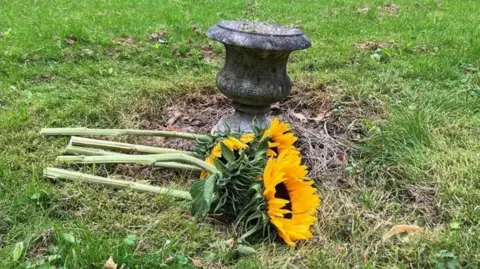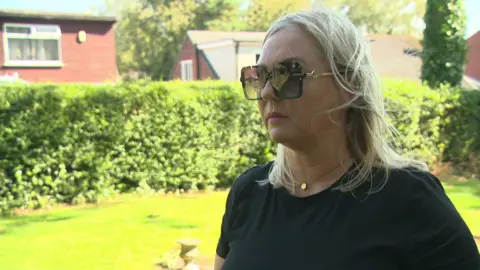Memorials to be put up at mass graves in cemeteries
 BBC
BBCPlans to erect memorials to those buried in mass graves in cemeteries across Oldham have been approved.
The decision by Oldham Council comes following the discovery of a mass grave in Royton, which is believed to hold 145 stillborn babies, 128 babies and young children, and 29 adults.
Council leader Arooj Shah told a meeting on Wednesday that permanent memorials would be placed in Oldham's cemeteries to remember adults, children and babies who were buried in unmarked graves.
"I hope this news will bring some peace and solace to those surviving relatives who have loved ones buried in our cemeteries," said Ms Shah.

The unmarked burial site in Royton was first opened in 1924, with the last burial having taken place in 1972.
"It is right to face the mistakes of the past and, more importantly, remember those precious lives," Ms Shah added.
The decision made at Oldham's full council meeting comes after family members of stillborn children discovered their loved ones had been buried in a mass grave in Royton cemetery.
The Royton grave was only discovered by chance when a woman set out to try to find the last resting place of her baby brothers.
One woman, who gave her name as Joanne, told the BBC she had found the grave of her uncle Joseph Morris, who was born in 1960, at the unmarked grave in Royton.
She said her family had "been upset for years, not knowing where he is", adding that "they've finally got some answers now."
Ms Shah said: "Our hearts go out to the family members who have discovered their relatives were buried in unmarked graves."
She said that thankfully this practice no longer happened, but it was wrong that there was no acknowledgement of this in Oldham's cemeteries.
The memorials will be funded through the leader's designated budget.
Records for the Royton public graves have now all been digitalised, and work is ongoing for the other records to also be put on line, a council spokesperson said.
They explained that families searching for their relatives would need to know the surname and approximate date of death.
The government said work was being done to improve the way burial records were kept.
- If you or someone you know has been affected by issues in this article, you can find support from BBC Action Line.
Listen to the best of BBC Radio Lancashire on Sounds and follow BBC Lancashire on Facebook, X and Instagram. You can also send story ideas to [email protected]
